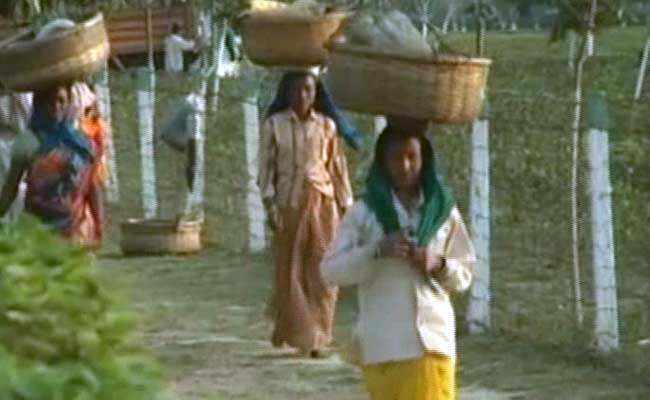- Ethnic Chinese people want recognition from state government
- They also want some help to preserve their cultural heritage
- The Chinese were brought to Assam by the British to grow tea in 1838
Did our AI summary help?
Let us know.
Tinsukia, Assam:
Willy Ho, a 46-year-old businessman in Upper Assam's Tinsukia, is a third generation Assamese of Chinese origin. He and others like him have just one key demand from the new state government that'll be elected this year - recognition.
The Assamese Chinese community has never been on the radar of political parties as their miniscule size don't make them a powerful vote bank.
"I will be happy if the government recognises us at least as an ethnic minority group. If we could receive some kind of recognition initially and thereafter some sort of help to maintain our ethnic heritage, that will be great," says the Mumbai educated management graduate, who now looks after the family business of manufacturing tea garden machinery.
Like many other families of Chinese origin, Mr Ho's family had become naturalised Indian citizens.
The first generation of Chinese settlers in Upper Assam came in 1838 as expert tea growers after British planters set up the first tea garden at Chabua, 20 km from the trading town of Tinsukia in Upper Assam.
At the time of Independence, nearly 1,500 Chinese families chose Assam as their home. Makum in Upper Assam had a flourishing Chinatown.

But now, only a handful are left. After the Chinese aggression of 1962, families of Chinese origin were either sent to detention centers in Rajasthan or deported to China. Their properties were sold or abandoned.
For example, a school built by the Chinese community prior to Independence has been converted into a Hindi school.
Loss of heritage is something that bothers Lee Su Chi, 88, who decided to return to Assam, spending three years at a detention centre in Rajasthan.
"None of my grandchildren can speak Chinese. They speak Assamese, Hindi or English," she said. "I have never been to China after we came here in 1940."
Her son John Wang, who runs a restaurant in Tinsukia, is now fighting to preserve their legacy.
"If the government helps us, we would like to set up a community centre and school to promote our culture and language," says John, who heads a newly formed association of Assamese Chinese.
The Assamese Chinese community has never been on the radar of political parties as their miniscule size don't make them a powerful vote bank.
"I will be happy if the government recognises us at least as an ethnic minority group. If we could receive some kind of recognition initially and thereafter some sort of help to maintain our ethnic heritage, that will be great," says the Mumbai educated management graduate, who now looks after the family business of manufacturing tea garden machinery.
Like many other families of Chinese origin, Mr Ho's family had become naturalised Indian citizens.
The first generation of Chinese settlers in Upper Assam came in 1838 as expert tea growers after British planters set up the first tea garden at Chabua, 20 km from the trading town of Tinsukia in Upper Assam.
At the time of Independence, nearly 1,500 Chinese families chose Assam as their home. Makum in Upper Assam had a flourishing Chinatown.

The Chinese were brought by the British in 1838 as tea growers in Assam.
But now, only a handful are left. After the Chinese aggression of 1962, families of Chinese origin were either sent to detention centers in Rajasthan or deported to China. Their properties were sold or abandoned.
For example, a school built by the Chinese community prior to Independence has been converted into a Hindi school.
Loss of heritage is something that bothers Lee Su Chi, 88, who decided to return to Assam, spending three years at a detention centre in Rajasthan.
"None of my grandchildren can speak Chinese. They speak Assamese, Hindi or English," she said. "I have never been to China after we came here in 1940."
Her son John Wang, who runs a restaurant in Tinsukia, is now fighting to preserve their legacy.
"If the government helps us, we would like to set up a community centre and school to promote our culture and language," says John, who heads a newly formed association of Assamese Chinese.
Track Latest News Live on NDTV.com and get news updates from India and around the world

